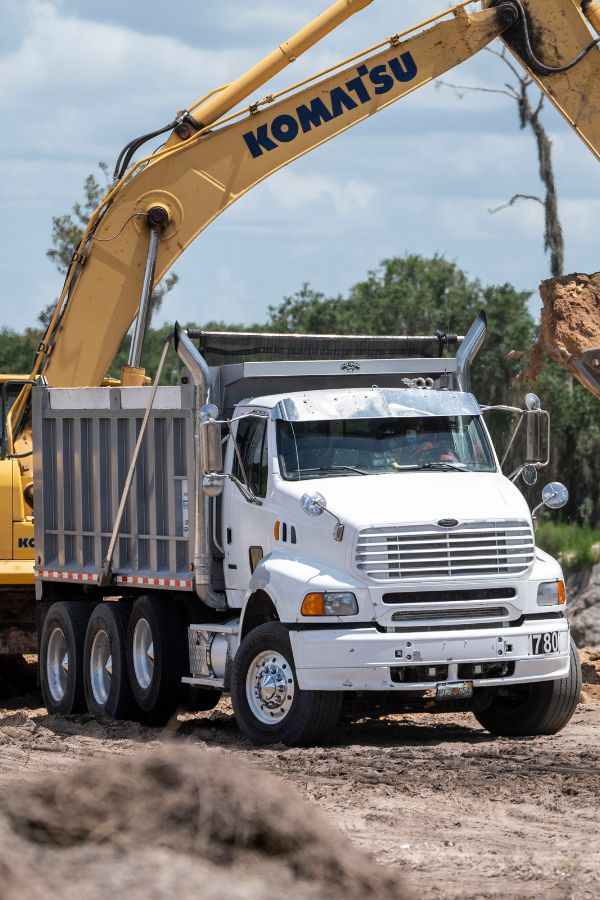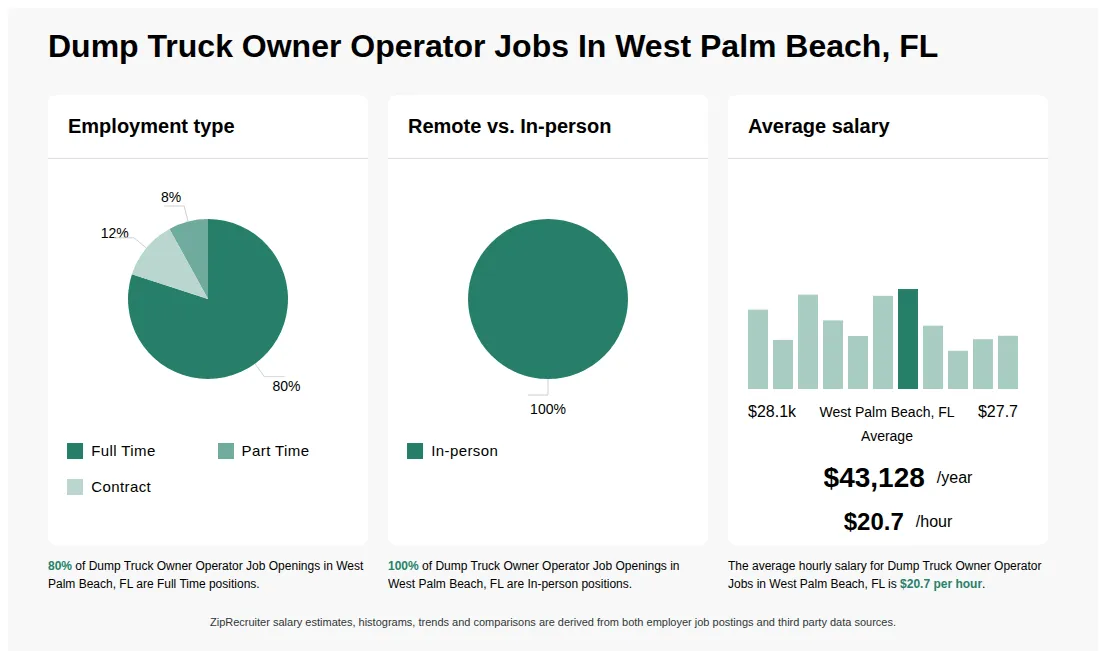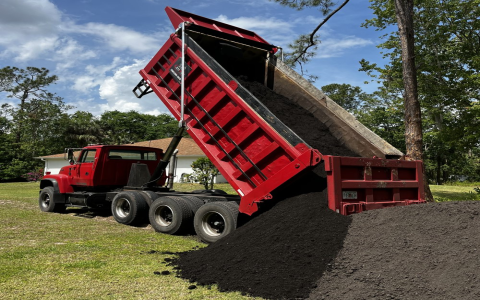Florida Dump Truck Owner Operator Jobs | Find Local Hauls
If you’re searching for Florida dump truck owner operator jobs, you’ve come to the right place. Finding consistent, profitable local hauls in the Sunshine State requires more than just a commercial driver’s license—it demands insider knowledge of the regional construction cycles, material hotspots, and reliable brokers. This comprehensive guide cuts through the noise, giving you actionable strategies to secure reliable contracts, maximize your earnings, and build a sustainable business on your own terms.

Why Florida is a Goldmine for Dump Truck Operators
The construction industry in Florida is booming. According to the Florida Department of Transportation, the state’s transportation work program includes billions of dollars in planned projects. From major infrastructure upgrades in Miami-Dade to new residential developments in Hillsborough County, the demand for material hauling is relentless.
As an owner-operator, you have a significant advantage. You’re not just a driver; you’re a business owner. This means you can build direct relationships with construction site managers, landscaping companies, and aggregate suppliers. The key is understanding the seasonal flow of work. The dry winter months often see a peak in construction activity, creating a surge in demand for hauling sand, gravel, and demolition debris.
How to Find the Best Local Hauls
Finding consistent work is the biggest challenge for any independent trucker. Relying solely on online load boards can be a race to the bottom on pricing. To truly succeed, you need a multi-pronged approach.
Build Relationships with Local Pits and Quarries
The source of the material is your best friend. Establish yourself at local limestone quarries, sand mines, and concrete recycling yards. Being a familiar and reliable face can often get you the first call when a load needs to be moved. This is one of the most effective ways to find Florida dump truck owner operator jobs that are both local and repeatable.
Register with Regional Construction Companies
Many mid-sized construction firms maintain a preferred vendor list for trucking. Take a day to visit the offices of local contractors, especially those specializing in site development and roadwork. Present your business professionally, highlighting your equipment’s capabilities and your reliability.
Leverage Load Boards Strategically
While not the only tool, load boards like Truckstop.com can be useful for filling gaps in your schedule. Focus on brokers who specialize in construction materials within Florida. The goal is to convert these one-off loads into long-term working relationships.
Maximizing Your Earnings as an Owner Operator
Your gross revenue is one thing; your take-home pay is another. Controlling costs is what separates profitable businesses from those that struggle.

- Fuel Efficiency: Idling is a profit killer. With Florida’s heat, it’s tempting, but using auxiliary power units (APUs) or seeking out electrified parking can save thousands annually.
- Preventive Maintenance: A well-documented maintenance schedule prevents catastrophic downtime. A single blown transmission can wipe out a month’s profit.
- Backhaul Strategy: Never run empty. Even a lower-paying load in the direction you’re heading is better than a “deadhead” mile. Coordinate with material suppliers to find return loads.
Essential Equipment for Florida Hauling
The right truck and trailer setup can make or break your efficiency. For the diverse conditions in Florida—from sandy soil to wet clay—certain features are non-negotiable.
| Feature | Recommended Spec | Why It Matters in Florida |
|---|---|---|
| Engine Horsepower | 400-500 HP | Provides the torque needed for heavy loads of wet material and navigating soft, unstable ground at construction sites. |
| Suspension | Air Ride | Protects both your truck and the load from damage on rough, unfinished job site terrain. |
| Trailer Type | Pup Trailer or End Dump | Pup trailers offer maneuverability in tight urban sites, while end dumps are better for high-volume, off-road applications. |
Navigating Florida’s Unique Regulations
Operating in Florida comes with specific legal requirements. The Florida Department of Highway Safety and Motor Vehicles (FLHSMV) mandates strict compliance for weight limits and registrations. For instance, Florida’s intrastate hauling often requires different permitting than interstate commerce. A solid understanding of these rules is crucial to avoid costly fines and delays. Consulting with a trucking-specific compliance expert is a wise investment for any new owner-operator in the state.
Frequently Asked Questions
What is the average income for a dump truck owner operator in Florida?
Earnings vary widely based on hustle and business acumen. While the U.S. Bureau of Labor Statistics cites a median pay for heavy truck drivers, a well-run owner-operator business can net significantly more after expenses. Many successful operators focus on securing dedicated contracts rather than spot market work to stabilize their income.
What type of insurance do I need?
At a minimum, you’ll need primary liability insurance and physical damage coverage. If you haul for others, bobtail insurance is also essential. Given Florida’s weather, comprehensive coverage is highly recommended.

How do I find reputable brokers?
Look for brokers with a strong presence in the Florida construction industry. Check their payment terms and ask other truckers for references. Reputable brokers pay quickly and treat drivers fairly.
Final Thoughts
Building a successful career with Florida dump truck owner operator jobs is about more than just driving. It’s about becoming a savvy businessperson who understands the local market, manages costs effectively, and builds a network of reliable partners. By focusing on these strategies, you can turn your truck into a profitable enterprise, securing those valuable local hauls for years to come.
Sources:
Florida Department of Transportation Statistics









